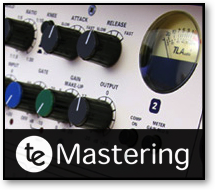




Stuff to share is our blog. Here we’ll not just keep you posted on what’s happening here at Tenth Egg, but also wider industry news, links to interesting music-related stuff and our thoughts on everything from equipment new and old to the perfect dunking biscuit.
If there’s a topic you’d particularly like to see covered then please feel free to get in touch



© Tenth Egg Productions 2008



A different approach to music production.

music mastering

Tips and tricks from our engineers to help you with your music making


Industry news, useful links and what’s going on at Tenth Egg








Thought : Do you need a record label?
For a long time the aim of most aspiring music makers has always been to get signed, preferably by a major label. The route to this? - playing gigs, sending in demos and generally doing anything to establish contact with someone in A&R (A&R being Artist & Repertoire : the people at a label who decide who is going to be the next big thing). However, something which had been steadily evolving over the past few decades has seen a rapid acceleration in recent years and that is a shift in the balance of power away from the traditional label. It's clear that changes in technology have been greatly enabling for the individual artist and it's something that can be felt at both ends of the scale as established artists turn away from the majors in favour of dealing direct with their fans and new names rise to prominence through online viral promotion.
09/06/08





The traditional rationale for needing a label in a large part came down to distribution and promotion - It's all very well having a great record, but if no-one knows about it and there's nowhere to buy it, you won't get very far. But while labels still hold sway over traditional media and distribution channels such as TV and bricks & mortar music stores, new online options have started to level the playing field. When you consider that iTunes is the biggest music retailer in the US the ability as an independent music maker to sell direct through iTunes is pretty significant. And while you might not have immediate access to the music press, TV & radio you can leverage (the significantly cheaper) online alternatives such as MySpace and YouTube. In fact independent artists often have the upper hand here as many labels either don't appreciate or are unwilling to engage with new media.
Of course there has and will always be the issue of ready cash. The kind of money needed to record in the tops studios, plaster the country with billboards and saturate TV with ads just isn't available to most independent artists. But then this is the old approach to launching an artist, the Britney Spears mass-market approach. Today you can produce a great sounding record for relatively little money and there are many low cost ways to promote it. Although you might not reach as many people wouldn't it be better Is it better to have a small piece of a large pie rather than a large piece of a small pie? Taking this analogy far too far, what if the size of the oven means that the large pie can't get any bigger,that small pie potentially could.
To get back on track, yes, it is perfectly possible to make a name for yourself off your own bat. But, there is also a new breed of record label that can significantly increase your chances, one that is relevant to the new media landscape. At Tenth Egg we work with this kind of record label week in week out. Their strength comes from their passion for music and dedication to supporting their artists. Unlike the traditional role of label as controller these are facilitators in that they get you publicity, find the right studio and handle all the licensing and contractual stuff, but don't interfere with you as an artist. They know how things work and they know the right people to make things happen. Often these are the kinds of label that can list their artists on two hands, giving them a real vested interest in your success and understanding you as an artist. You can concentrate on making the music you love.
While commentators are questioning the long-term future of the record label, launching yourself as an independent artist is still a lot of hard work and for success requires not only dedication but a shrewd understanding of the industry as well as a strong talent. The third way in music is the micro-label, which offers the support most artists need without taking away control.
As No. 1 music retailer in the US and with 80% of the UK download market, iTunes represents a serious alternative to bricks & mortar distribution for the independent musician

